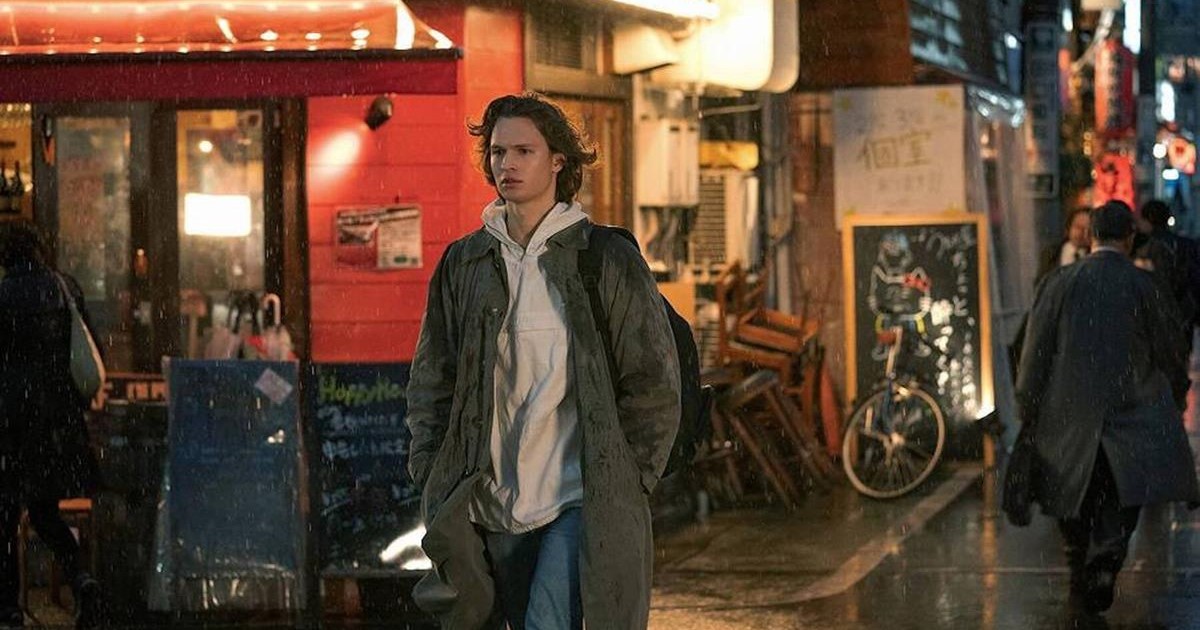
When a Hollywood heavy-hitter gets involved with a big American television production 100% embedded and shot in Tokyo during a pandemic, you already have a story within a story. Add in the fact that plot was inspired by a memoir written by a colorful character in his own right, and you have quite the layered drama.
Director, producer and writer Michael Mann took on the pilot for HBO Max’s Tokyo Vice. Mann, who hadn’t directed anything since the underrated Blackhat in 2015, was approached by John Lesher, a former head of Paramount Pictures who had optioned the book of the same name when it came out in 2009 and had signed on as a producer of the adaptation.
RogerEbert.com’s Nick Allen beautifully sums up the thriller: “Tokyo Vice is something of a dream when it comes to nonfiction, genre-related entertainment. It has the thrum of a newspaper story, the bloodied grip of a yakuza thriller, and the mysterious conspiracy of a fascinating noir tale. A seductive universe that balances a fish-out-of-water perspective with traditions in Japanese crime.”
(More on that nonfiction characterization later.)
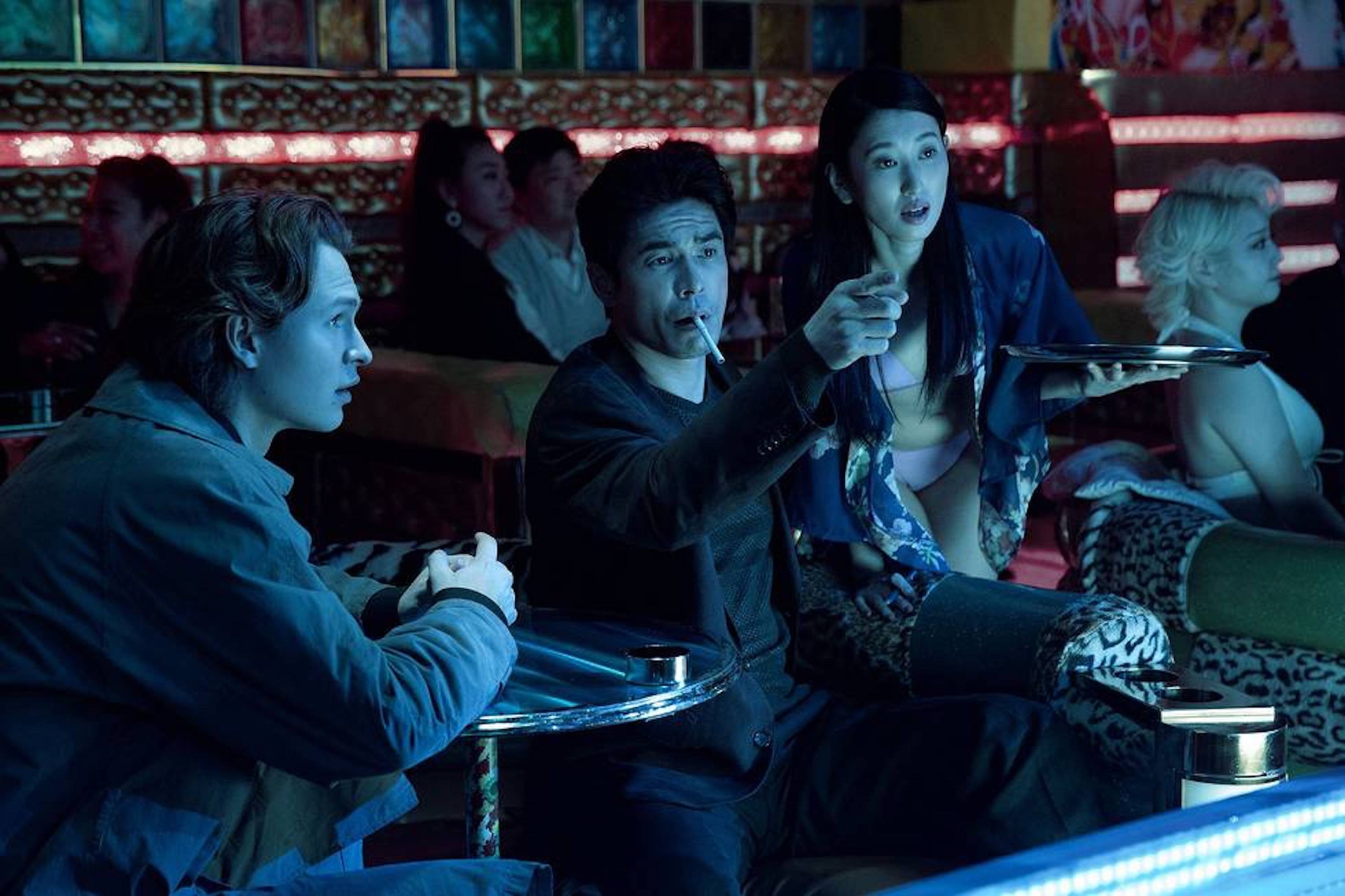
Cr. WarnerMedia
The New York Times’s Erik Augustin Palm caught up with author Jake Adelstein, 53, in Tokyo, where he still lives, for a story published ahead of the show’s premiere.
“Based on Adelstein’s memoir of the same name (the book’s full name is Tokyo Vice: An American Reporter on the Police Beat in Japan), the eight-episode series tells the story of a young American reporter at a large newspaper in 1999 as he uncovers ties between the police, politicians and Tokyo’s criminal underworld while facing cultural clashes, societal hierarchies and the challenges of forging his own path.”
Palm describes Ansel Elgort’s version is of the American cub reporter as a “lightly fictionalized version of Adelstein.” However, playwright and Tokyo Vice showrunner J.T. Rogers stressed to Palm that “Tokyo Vice is not biography, nor documentary. It’s inspired by real events, but it’s fiction.”
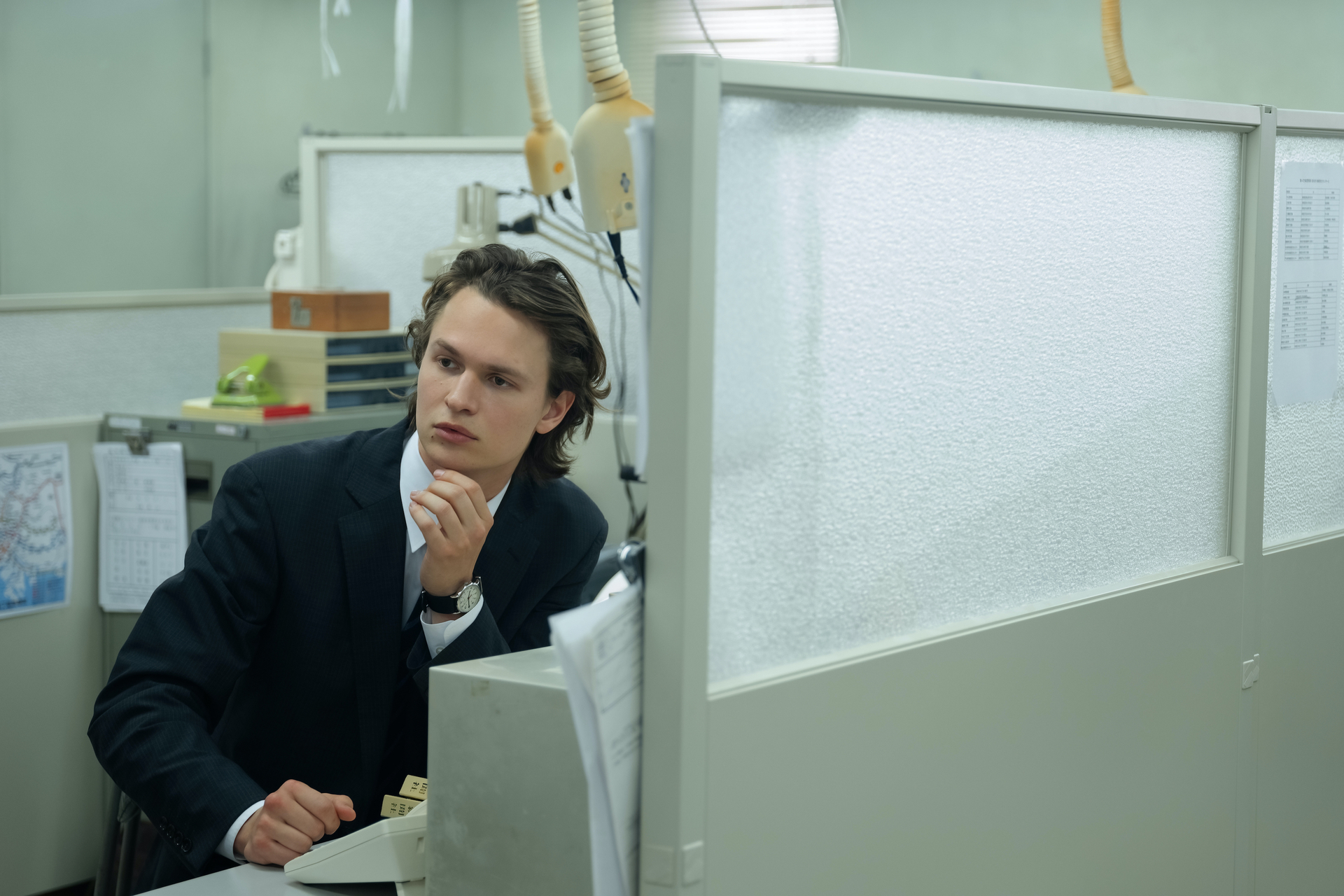
Cr: WarnerMedia
The profile also notes that Rogers is a childhood friend of Adelstein’s. (Perhaps the tourist “Dave Finch — from Rockbridge” theater kid of episode seven is an Easter egg alluding to this connection?) Adelstein initially tapped Rogers to adapt the memoir into a film, but he took on the showrunner gig when Mann came on board.
In fact, Tokyo Vice was originally set to be a movie starring Daniel Radcliffe who was to play Adelstein (a role that eventually went to Ansel Elgort for the TV series).
Adelstein believes the Japanese film industry’s lingering fear of the yakuza was a factor in the demise of the movie option; others involved chalked it up to more mundane financing issues.
READ MORE: ‘Tokyo Vice’ Revisits a Faded Underworld (NY Times)
Renewed Fame Dredges Up Adelstein Controversies
However, it’s worth noting that the buzz about the show has drawn out its fair share of critics, who doubt the plausibility of many of the scenarios presented in Adelstein’s memoir.
The Hollywood Reporter’s Gavin J. Blair broke the scoop about Adelstein as unreliable narrator via an interview with one of his cub reporter contemporaries at the Yomiuri Shimbun, Naoki Tsujii, and another with producer-director Calder Greenwood, who briefly tapped Adelstein as a fixer for the National Geographic documentary Crime Lords of Tokyo.
“[W]ith the high-profile nature of the show, which debuted April 7 on HBO Max, there is renewed focus on the veracity of some of the stories Adelstein has been telling about himself over the years — under the guise of nonfiction memoir,” Blair writes.
For his part Tsujii told Blair that he admires Adelstein but — as a former reporter and current literature professor — “he knows the difference between the disciplines” of memoir and fiction, as Blair puts it.
Greenwood’s memories and characterizations are not so generous, perhaps colored by the lawsuit — dismissed with prejudice — that Adelstein filed against NatGeo/Fox to bar the broadcast of the show, claiming it would endanger his life (after he had been fired from the production).
Despite the increased scrutiny, or perhaps because of it, Adelstein has doubled down on even the most unlikely bits of his book, namely time allegedly spent undercover with a yakuza clan and instances of sources demanding he trade sexual favors in exchange for information.
For his part, Tokyo Vice executive producer John Lesher was quick to distance his version of Adelstein from the one put forth by the actual man. Lesher told THR, “There were so many things that we embellished and created that had nothing to do with, let’s call it ‘the real Jake Adelstein story. Whether the book is true or not, you should take it up with him and the people depicted in the book. I wasn’t there.”
A nondenial denial.
READ MORE: Insiders Call B.S. on ‘Tokyo Vice’ Backstory (Hollywood Reporter)
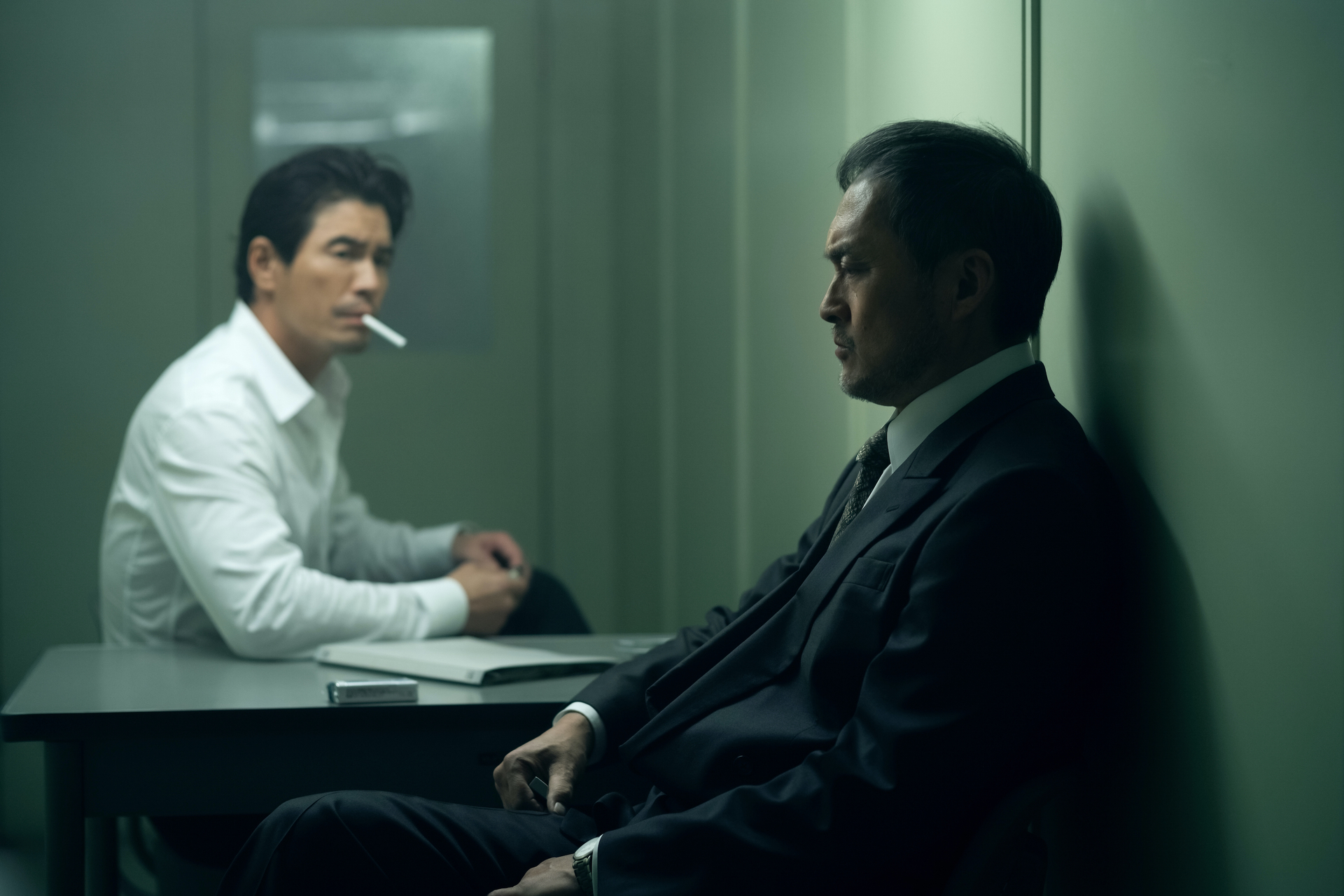
Collider’s Steve Weintraub interviewed showrunner and Tony-awarding winner J.T. Rogers and producer/director Alan Poul.
Poul had lived in Tokyo in the ’80s and had worked on Ridley Scott’s Black Rain yakuza-themed movie as associate producer. His prize asset was that he spoke fluent Japanese, which ultimately got him the job on the Scott movie. Poul also directed the finale of Tokyo Vice.
“It’s easy to barely skim the surface of Japan and still deliver to an American audience the exoticism and visual sophistication they crave,” Poul said. “We hoped to really get below the surface and present an authentic portrait of Japan, one that will deepen people’s understanding of the country.”
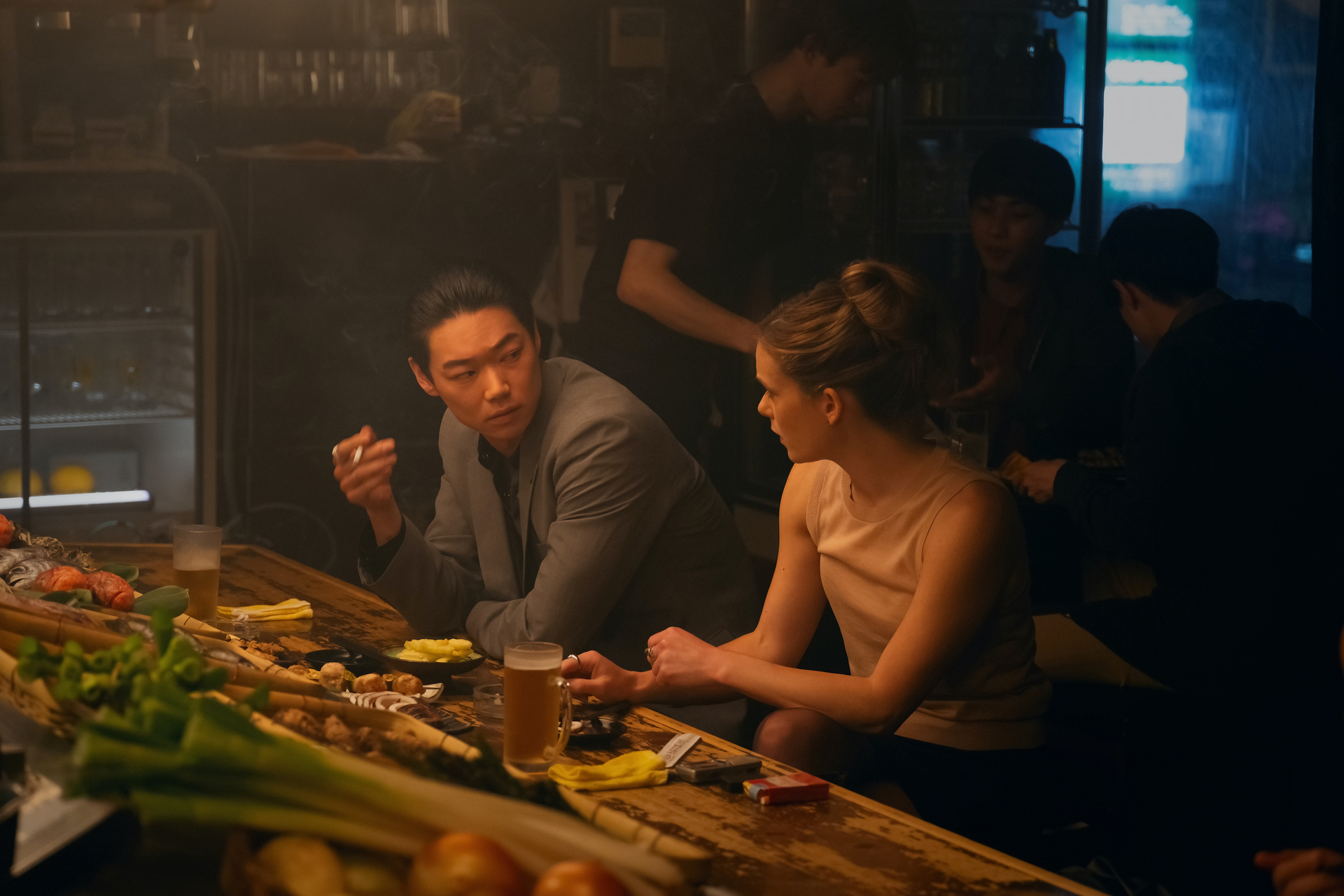
Cr: WarnerMedia
Rogers talked about how their pandemic shutdown had, in fact, helped the production. including actors given time to fine tune their Japanese or English, as it was to be a bilingual script.
Rogers explained, “We only shot six days when we were shutdown, but it gave us a chance to re-assess and just feel more secure about what the show was when we went back.”
We hoped to really get below the surface and present an authentic portrait of Japan, one that will deepen people’s understanding of the country.
Alan Poul
Lead Elgort had continued to study Japanese during the shutdown, which allowed him to rise above “mimicking his line” phonetically but actually knowing what he was saying.
But, as other global productions had found, the pandemic restrictions played in to the hands of the producers; especially in Japan. Tokyo’s COVID-19 emergency measures urged establishments to close early and largely emptied the streets, creating favorable conditions.
“The ability to shoot in the time-warped area Golden Gai, with its highly cinematic narrow alleys lined with hundreds of tiny bars, likely wouldn’t have been an option before the pandemic,” said Poul.
READ MORE: Tokyo Vice Creator J.T. Rogers & Producer Alan Poul on Making a Crime Series in Japan (Collider)
Michael Mann’s Enormous Influence
Once filming was able to continue after the shutdown, shooting an enormous bilingual show in Tokyo during a pandemic presented myriad problems. The production had to administer roughly 300 P.C.R. tests per week for seven months. Locations like the labyrinthine, neon-lit alleyways of Kabukicho, while visually dazzling, made for punishingly complex shoots.
The New York Times review by Mike Hale doesn’t underestimate the pull of Michael Mann’s direction of the pilot and so the show’s tone. “And like Lost in Translation, with its voluptuous, melancholy romanticism, Tokyo Vice finesses its exoticism by asserting a distinctive style — in this case the moody, atmospheric naturalism of Michael Mann, who directed the pilot and helped set the look and rhythms of the series.”
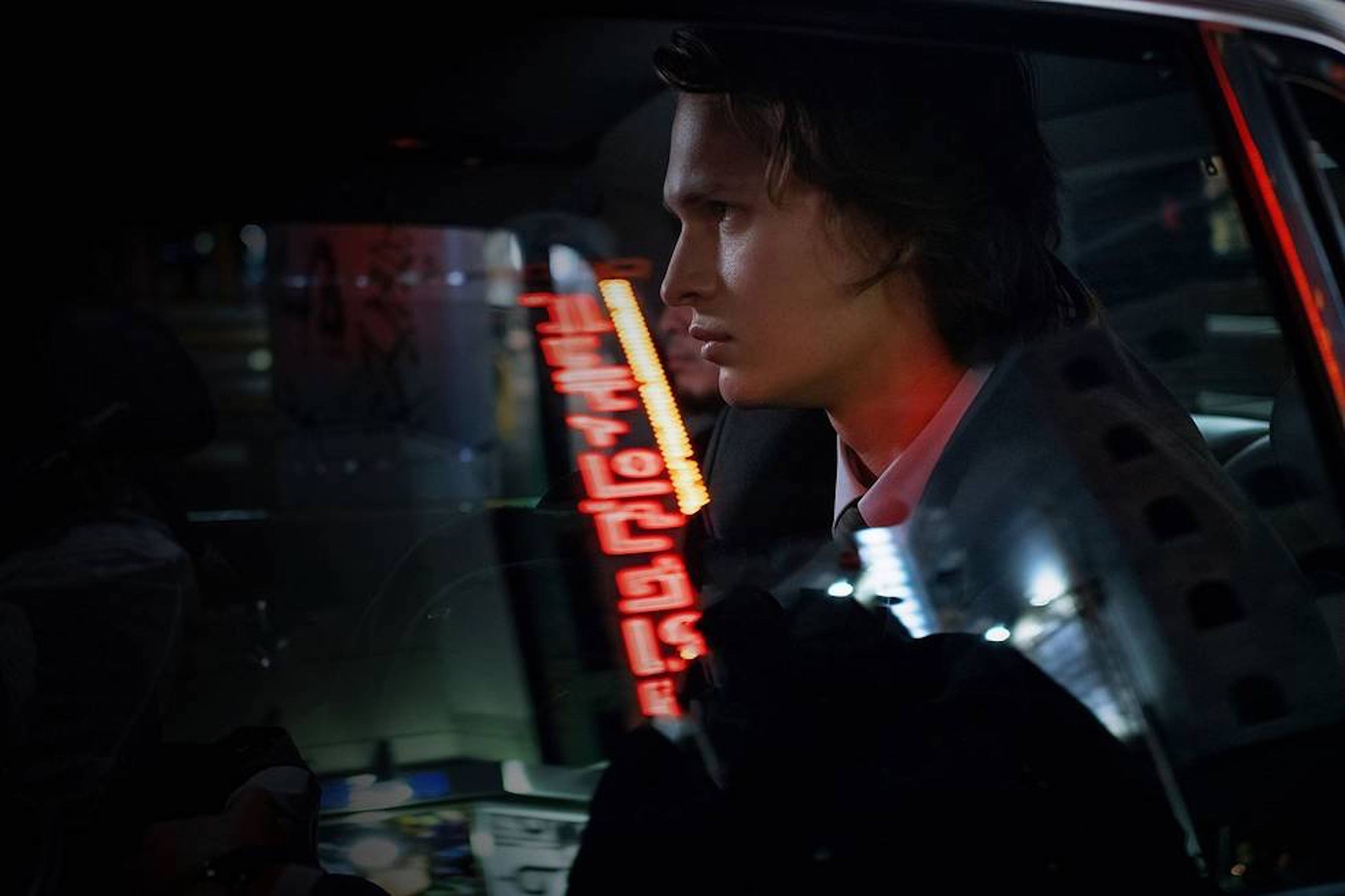
Many of the reviews hark back to the Al Pacino character in Mann’s 1999 The Insider with his incessant 60 Minutes producer’s drive. Mann wanted Elgort’s character to follow the same path but with the added stress of being a stranger in a strange land.
Mann told The Ringer why he believed in the character so much: “It’s the imperative and commitment of this main character in becoming a reporter and doing it in Japan. It’s his quest to report what really happened. That was the appeal of the project.”
The good news for Mann fans comes from The Ringer’s review: “The good and unsurprising news is that, after a seven-year absence from filmmaking, Mann hasn’t lost his fastball. In his finest feat of image-making from the pilot, we see a series of trains going in and out of Tokyo before the camera focuses on a nearby victim who’s been stabbed with a sword: a potent metaphor for how the yakuza have penetrated the city.”
READ MORE: Behind the Scenes of ‘Tokyo Vice’ With Director Michael Mann (The Ringer)
Rogers underlines the importance of the Mann’s “tone building” to Entertainment Weekly: “As is the wont for most shows, your bill as the director of the first episode is to set a visual tone and help build the structure,” he says.
Mann “is justly lionized for his nighttime noir and the show, especially the first episode, is really drenched in that. So it was terrific to watch him work that way. Plus, we cast together, and you give him a lot of deference because he’s got great experience.”
READ MORE: What Michael Mann brought to Tokyo Vice (EW)
“Early 21st-century Tokyo (most of the first season takes place in 1999) seems like it was built for Mann to shoot, with its abundant cool glass and metal surfaces, and its abundant neon signage,” Alan Sepinwall writes for Rolling Stone. “There are some gorgeous shots, particularly one of four different trains passing the same location at once while a man stands framed by all the tracks; the camera pulls out and we see that the man has been stabbed to death by an old-fashioned blade, contrasted with this modern backdrop.”
Beyond the aesthetics, the series “makes a number of sincere gestures towards the city in which its fictionalized Jake has settled,” Sepinwall writes. The attempts are both literary and practical, including a script that heavily features Japanese conversations and English subtitles and a cast of characters more well rounded than prior attempts to showcase an American PoV of another culture.
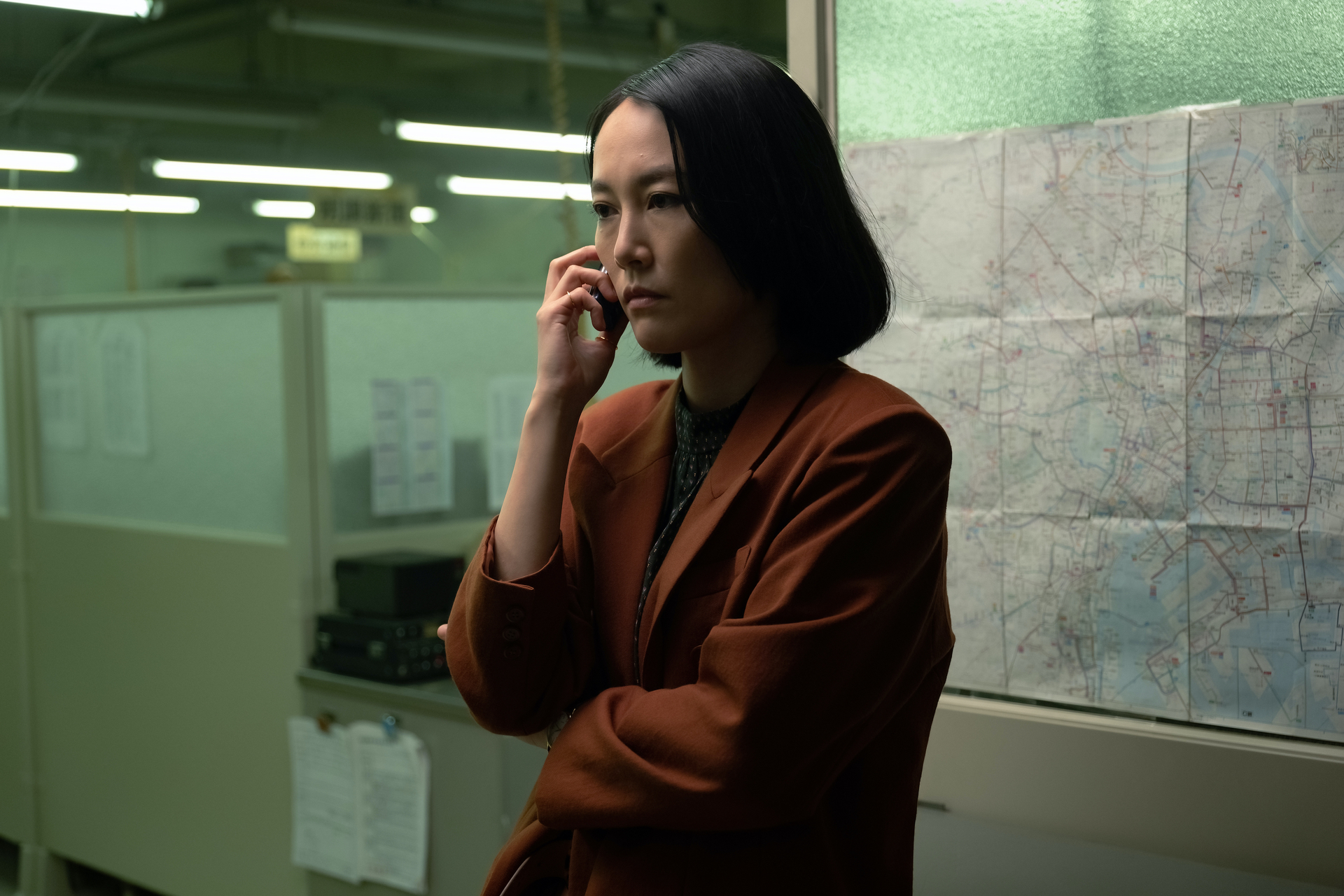
Cr: WarnerMedia
Nonetheless, Sepinwall and other critics note that the two U.S.-born personas are in many ways the least interesting and by using them as guides we are hindered from looking into corners of Tokyo that might be the most illuminating to explore.
Sepinwall concludes, “This is a decent show, but one that feels like it would be much better if it were willing to be more Japanese.”

